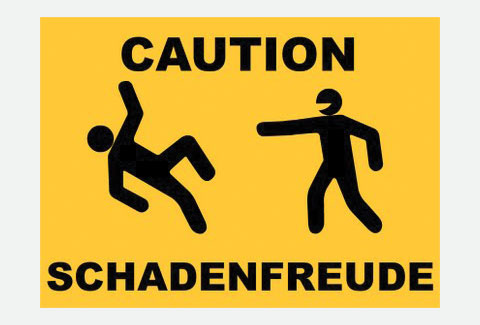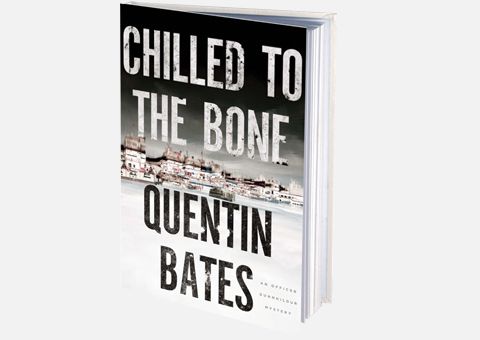
Did George Bush really say that the problem with the French is that they have no word for Entrepreneur? It may be an urban myth, but that doesn’t make it any less interesting, not least because it’s English that doesn’t have its own word for entrepreneur that quite captures the sense of the word. We borrowed that one from our favourite neighbours across the Channel.
Untranslatable words are fascinating, providing an insight into a nation’s psyche, as well as giving translators something to think about. Every language has a bunch these idioms that can’t be translated. Many of them have already migrated into English anyway to give our language a certain je ne sais quoi, many of them from French. But English is a mongrel of a language that happily absorbs words from every direction. Put on that khaki anorak over your pyjamas and come out onto the veranda. See what I mean?
German’s untranslatable words don’t seem to strike the same chord with us Anglophones as the French ones. German, with its compound nouns, has some fine untranslatable words that really should have a place in English, but don’t. Every workplace should have a Radführer, a subtle combination of brown-noser and control freak. Then there’s the wonderful Backpfeifengesicht, a face that demands a thump or a slap. Again, most workplaces have at least one of these as well. How about Drachenfutter? This is dragon feed, applied to the bunch of wilting flowers purchased at a petrol station to placate one’s wife after staying out rather too late. It would even be possible to derive a little Schadenfreude from such a Pechvogel’s misfortunes.
As can be imagined, cultures further from our own present even more of these untranslatable terms. In Japanese a kyoikumama (education mother) isn’t far removed from an Eislaufmutter (an ice-skater’s mother) in German, describing the kind of pushy mother who expects a little too much of her children.
Japanese has many, many terms we don’t have anything close to, from the macabre tsuji-giri, the act of trying out a new sword on a random passing stranger, to the sublime komorebi, sunlight filtered through the leaves of a tree. I like the idea of age-tori, the Japanese term for having had a haircut that only makes one’s appearance worse. Having experienced this phenomenon more than a few times, finally I have a word for it.
Finnish has a fabulous word, pilkunnussija, literally, comma-fucker, to describe the officious need to correct every minor mistake and error to a ridiculous degree, such as those people who start to go hot under the collar at the sight of misplaced apostrophe’s, such as that one. The closest English equivalent would be the term Grammar Nazi, although a pilkunnussija’s extreme punctiliousness could be applied to any walk of like rather than just grammatical errors.
Staying with the workplace theme – notice how many of these describe the people we don’t necessarily like but have to spend our time with anyway? There’s a Russian word, pochemuchka. Most of us have attended those dire meetings where we thought everything had finally been discussed and decided and we’re ready to get out at long last. That’s when some poltroon pipe sup with a dozen more questions that don’t need asking, going over stuff that’s already been decided yet again for good measure, probably because that person loves the sound of their own voice. That’s the pochemuchka.
English has a few terms that don’t make it beyond our borders. Jobsworth is a good one, from the phrase ‘that’s more than my job’s worth,’ accompanied by much tutting and doubtful sucking of the teeth, and used to describe a pettifogging minor official incapable of deviating a gnat’s knob from the letter of the rule book in his top pocket, preferably in a way that provides his unwitting victim with maximum inconvenience.
Another favourite is dreckly. It’s a word from Cornwall and if someone says they’ll do something dreckly, then don’t hold your breath. A Cornish friend once explained the term as being ‘similar to Manaña in Spanish, but without conveying anywhere near the same level of urgency.’
Icelandic has a handful of words that don’t translate. Nenna is a good one, a verb that means that a person can/can’t be bothered to do something, even though, confusingly, they may well get on and do it anyway.
Aumingi is an awkward one. Literally it means a weakling, someone unable of looking after himself, but the meaning can extend to someone who is in that position through sheer personal idleness or stupidity rather than disability.
Frekja is the best one. It’s a noun describing a peculiarly Icelandic blend of obnoxious and bloody-minded pushiness that has no real equivalent in English. It transmogrifies into an adjective as well, frek or frekur, depending on whether the inconsiderate numbskull who parked a hulking 4×4 in a disabled spot is is male of female.
Come to think of it, we don’t even have a decent English term to describe a borrowed word that carries nuance of meaning that our own language doesn’t have. Surely we need one? Suggestions on a postcard, please.
__________________
Quentin Bates’ Chilled to the Bone releases this December. Enter to win a free galley, here.

__________________
* Ed. note: this post originally appeared on the International Crime Authors Reality Check blog.